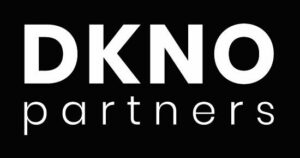NUF in Norway: Advantages and disadvantages of Norwegian-registered foreign companies
When Danish companies consider expanding to Norway, choosing the right company form is crucial. NUF (Norwegian Registered Foreign Company) is a popular solution for foreign companies that want to do business in Norway without setting up a completely new, independent entity. But what does an NUF entail and what are the main advantages and disadvantages of this structure?
What is NUF?
An NUF is a branch of a foreign company where the company registers in Norway but retains its legal foundation in its home country. In practice, this means that you can operate in the Norwegian market without having to establish a separate legal entity in Norway. This allows you to benefit from operating across borders without incurring the costs and administrative requirements associated with setting up a company as an AS.
Advantages of NUF:
- No share capital requirement: Unlike an AS, an NUF requires no capital creation. This makes it cheaper and faster to set up your business in Norway, especially if you just want to test the market.
- Fast market access: NUF allows you to enter the Norwegian market quickly and without having to go through complex legal processes.
- VAT number (VAT): By registering an NUF, you can get a Norwegian VAT number, making it more economical to import goods and services to Norway and administer VAT in the country.
- Invoices and domains: With an NUF, you can issue Norwegian invoices and get a .no domain, which can increase credibility with your Norwegian customers.
- Accounting benefits: If your turnover is less than NOK 6 million, you are not required to submit accounts in Norway.
Disadvantages of NUF:
- Less trust from Norwegian partners: An NUF is not a separate legal entity, which means it often does not have the same credibility as an AS. Some Norwegian customers and suppliers prefer to work with companies that are fully registered as AS as it creates more trust and security.
- Legal responsibility: Because NUF is not an independent company, the parent company in the home country is liable for any obligations, including debts and legal disputes in Norway.
- Limited growth potential: NUF is ideal for smaller companies or those who want to test the market. However, if you plan to set up a larger company with more employees and physical offices in Norway, an AS may be a better long-term solution.
Should you choose NUF?
NUF is an attractive option for companies that want to establish themselves quickly in Norway with minimal start-up costs. It is particularly suitable for smaller companies that want to expand without tying up large capital resources. However, you should consider whether the lack of legal separation between the parent company and the NUF fits your company's long-term strategy.
Starting a business in Norway?
Contact us today for a no-obligation conversation.
